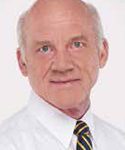The human brain is an amazing organ. It comprises the same biological matter as the rest of the body, but remarkably, it somehow gives rise to consciousness and self-awareness. Despite years of research, scientists are still mystified by how it actually does this. Nobody really understands how living cells, sorted and connected in just the right way, can turn a weak, relatively hairless animal into a sentient being that is so extraordinarily intelligent, self-reflective, and innovative.
What we do know is that our brains have no data storage system like a computer’s RAM, in which individual pieces of information are organized and warehoused and accessed at will via a catalog coding system. So how do brains organize and store information?
The best (and likely only) metaphor to describe this process is story creation. We sort and store information and view the world through stories. This is one of the unique distinguishing traits that make us human. All animals have brains, but it is our ability to see our world through stories that creates the mind and, for better or worse, has put us in charge of this planet.
The mind, like nature, abhors a vacuum. It is an incessant story-making machine that is constantly trying to make sense of the world. This is a wonderful capacity, and it serves us well, helping us create meaning and shared cultures ever since our distant ancestors gathered around their campfires to share stories. However, it has its downsides. Assumptions, beliefs, and biases are also a natural and inevitable aspect of the human condition.

Your Prevailing Personal Story
We each have a single big story, with ourselves in the starring role. This story contains remnants of all the things we have experienced in life so far: who we are, what is important to us, what we are and are not good at, what we mean to other people and them to us, etc. In short, it tells us who we are, where we came from, and what is important to us today, which is why I call it our Prevailing Personal Story.
A Prevailing Personal Story may contain hopes and dreams, but most are dominated by yesterday and today. We have many smaller stories about events, people, or circumstances that are less important. These are shed as time fades our memories or enhanced as our interests change.
Our Prevailing Personal Story, however, doesn’t change much. It is the narrative (as deep and complete as you can make it) you tell yourself about how you, others, and the world function. It is a synthesis and product of all your experiences to date and is your guidance for surviving and thriving in each system you enter. Specifically, it is your guide to:
- Relating to others in your communities,
- Loving and being loved,
- Responding to and exerting authority,
- Managing your time and energy, and
- Creating defensive and offensive strategies.
Your Prevailing Personal Story is no small deal. It represents the life you have created and, as such, is central to everything you do, learn, and aspire to. There is nothing wrong with having a Prevailing Personal Story. We all have one, and we bring it to the coaching conversation.
The coach needs to understand the significance of story. He or she needs to know that those he or she coaches have stories about themselves, and it is his or her job to help the people being coached identify and explore their stories and then create a better, bigger story.
All stories are wrong, to some degree, and all stories are partial. Perceived adversaries may really be indifferent bystanders; obstacles may, in fact, be self-imposed limitations; and failures are often products of random unseen forces. No matter how intelligent we are, we cannot see outside of our own stories.
The master coach helps others recognize that many of the unsatisfying events they experience in their work and life are caused by their responses to particularly difficult challenges or particularly appealing opportunities and that their responses are deeply rooted in patterns of behavior and implicit assumptions that emanate from their Prevailing Personal Stories. Their Prevailing Personal Stories, as important as they are, often get in their way and limit their lives. To change their lives, they need to change their stories.
Master coaches show others that they have the power to change their story. They help those they coach see that their stories are not static but are dynamic and can be expanded, enhanced, or enriched.
This is, in fact, the essence of all great coaching—helping others craft new, bigger stories for themselves.
It’s like everyone tells a story about themselves inside their own head. Always. All the time. That story makes you what you are. We build ourselves out of that story.—Patrick Rothfuss, The Name of the Wind
| Learn how to initiate and guide high performance and accelerated talent development, when you join Gregg Thompson for the action-packed workshop: Leader as Coach—Becoming a Catalyst for High Performance and Accelerated Talent Development. This engaging, highly experiential course is designed for managers, leaders, and influencers who understand the necessity of superior coaching in today’s business ecosystem where leadership development has become everyone’s responsibility. This learning opportunity will take place on November 14, 2018 as a preconference workshop at our annual Workforce L&D conference in Las Vegas. Click here to learn more or to register today! |



